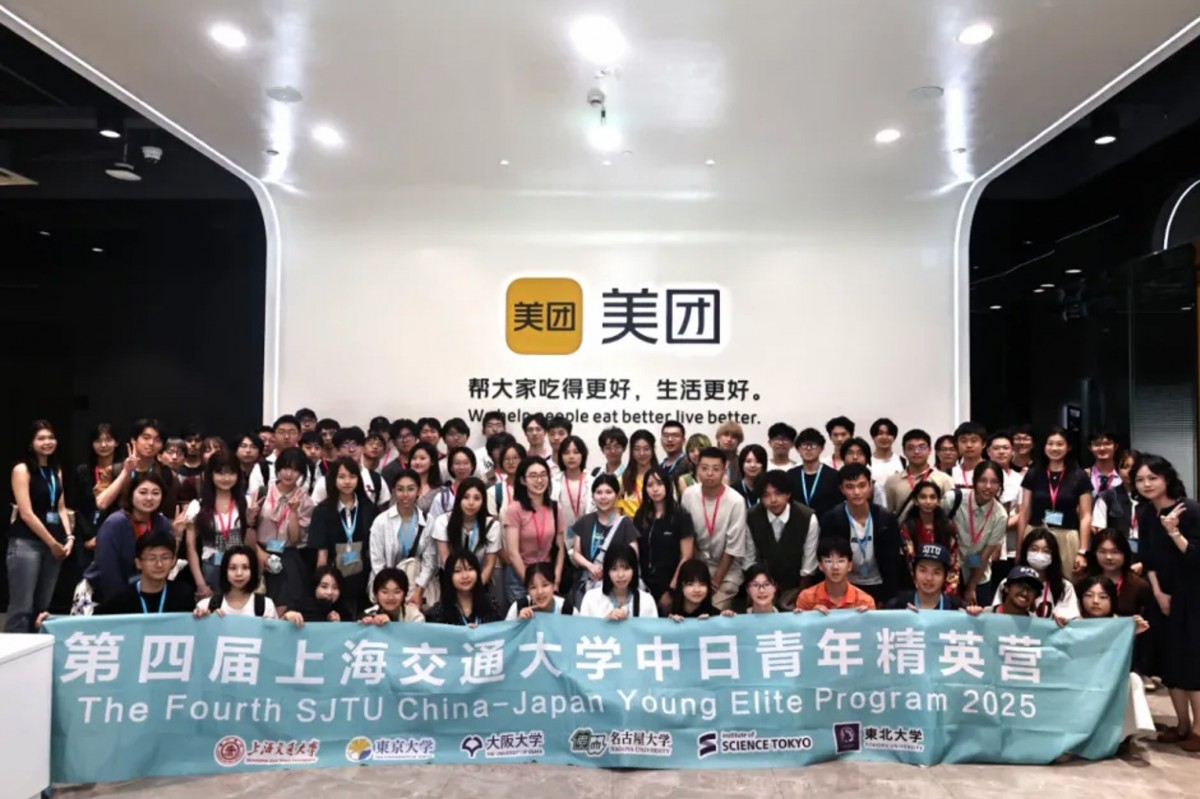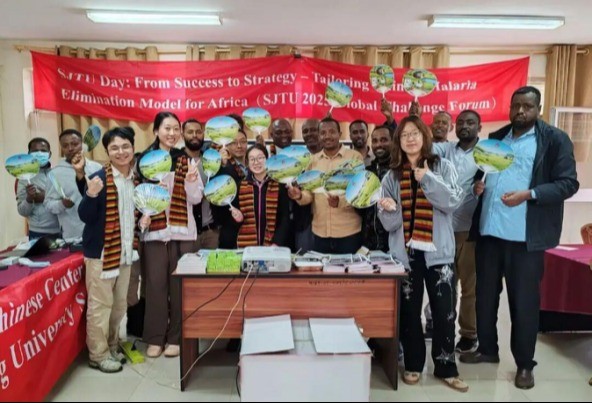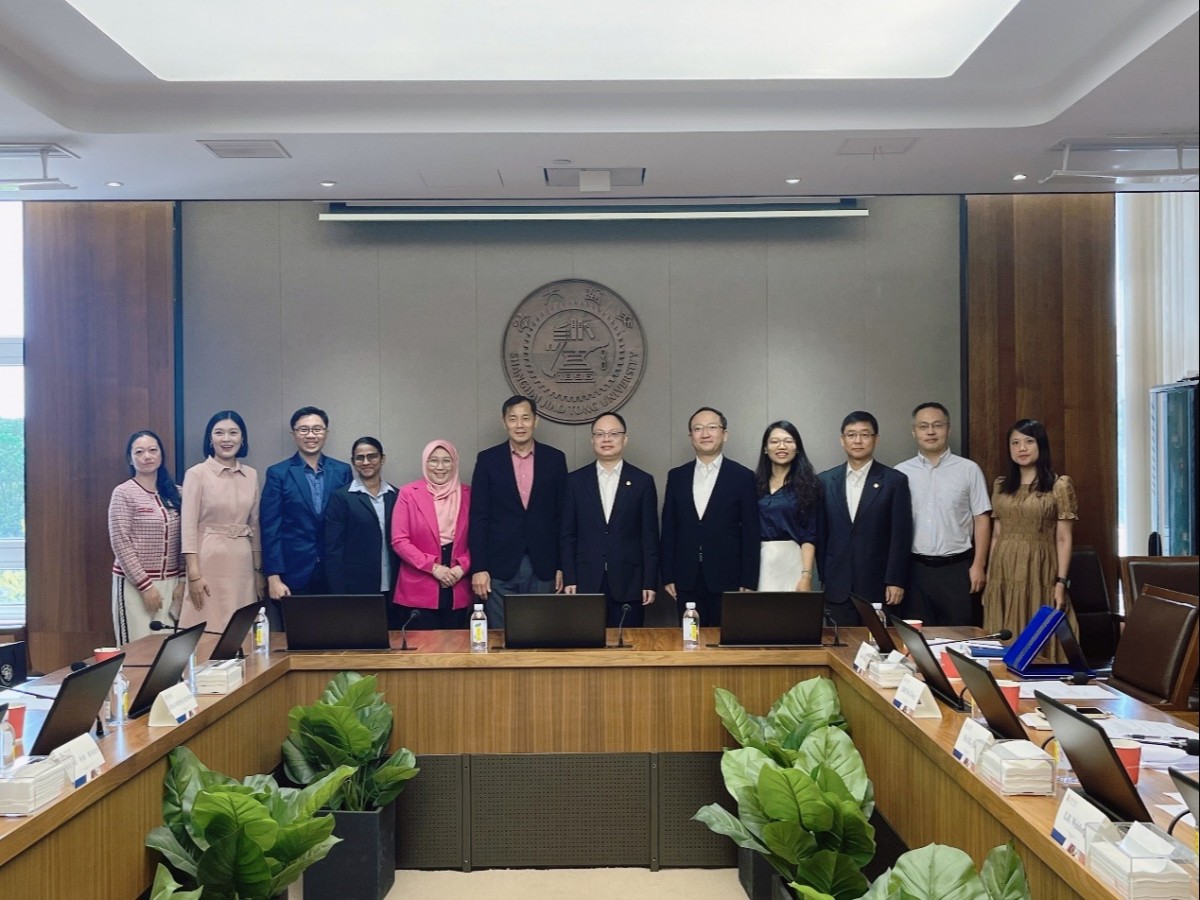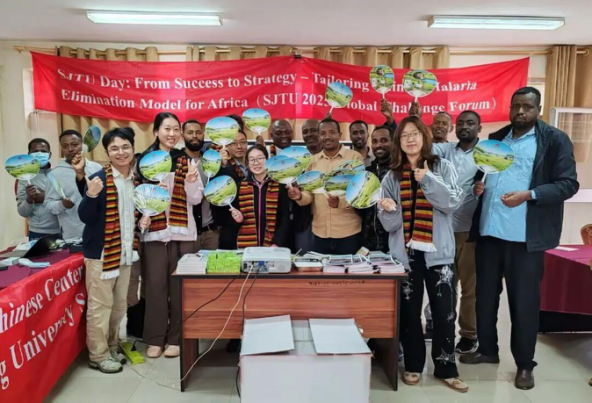
2025 marks the 55th anniversary of diplomatic relations between China and Ethiopia. Over the past half-century, the two countries have forged deep friendship based on the principles of “mutual respect, equality and mutual benefit, and win-win cooperation” across politics, economics, and health. Against this backdrop, in July–August 2025, the Global Health School of Shanghai Jiao Tong University School of Medicine–National Institute of Parasitic Diseases launched the Global Challenge Program “Optimization and Promotion of China’s Anti-Malaria Experience in Africa.” Centering on Ethiopia—a high-burden malaria country—the project combined “theory building, field problem-solving, and cooperative implementation” to translate China’s malaria-control expertise into practical solutions for Africa, offering a substantial “health partnership” tribute to the 55th anniversary of China–Ethiopia ties.
Field Visits: Learning from the Grassroots
From 29–31 July, the project training camp opened at SJTU School of Medicine, bringing together 15 students from disciplines including basic medicine, public health, computer science, and art design. Vice Dean Zhou Xiaonong highlighted China’s “1-3-7” malaria control strategy—“case reporting within 1 day, case investigation within 3 days, and focus response within 7 days”—hailed as the “golden key” to China’s malaria elimination and a model for rapid response and precision interventions in endemic regions. Dr. Kokouvi Kassegne lectured on malaria epidemiology and the global and Ethiopian situations. Former Gates Foundation senior program officer Wei Xiaoyu led participants through project design using a logical framework, emphasizing system linkages between surveillance, prevention, treatment, vector control, and community mobilization. In online sessions, Dr. Feng Xinyu analyzed China’s institutional and technical pathways to malaria elimination, while Dr. Wang Duoquan shared localized practices in Tanzania. Associate Professor Teklu Takele from Wolaita Sodo University described Ethiopia’s current challenges and offered recommendations on logistics, laboratory capacity, and community interventions to help localize Chinese experience.
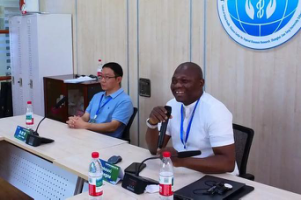
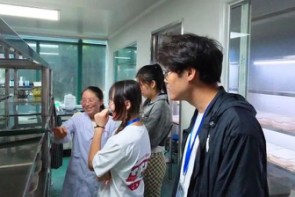
To deepen understanding, students visited the Jiangsu Institute of Parasitic Diseases and the Binhu District CDC in Wuxi on 31 July, gaining first-hand knowledge of China’s vector control and parasitic disease prevention. At the institute’s science museum and labs, experts demonstrated China’s success in malaria control and its relevance for Africa. In the mosquito-vector lab and semi-field monitoring base, students observed mosquito transmission mechanisms, insecticide resistance, and monitoring technologies, and discussed Africa-specific challenges, strengthening problem awareness and practical orientation.
At Wuxi’s Binhu District CDC, students learned about the critical role of local CDCs in disease prevention, health surveillance, and emergency response. Real-world cases and detailed data illustrated how China’s “last-mile” public-health network operates efficiently and precisely. This experience underscored that global health depends not only on macro-level policy design but also on every frontline act of surveillance, education, and intervention—deepening students’ sense of responsibility and mission.
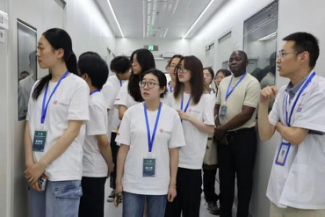
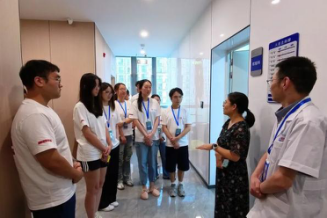
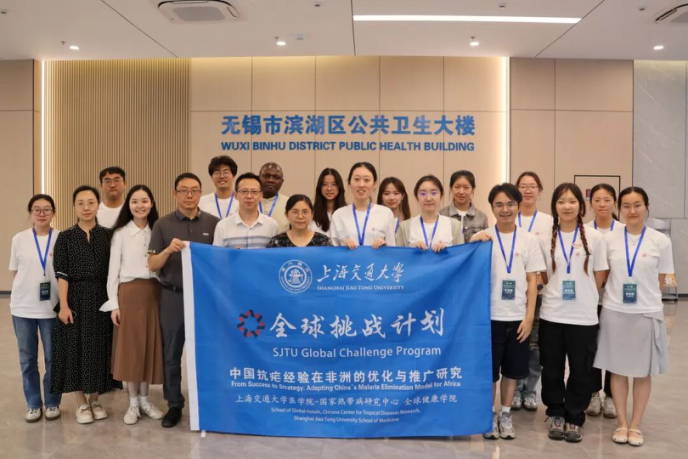
Collaborative Exchanges: Co-Creating Malaria Control Solutions
On 25 August in Addis Ababa, the practice team attended a public-health cooperation forum co-hosted by Ethiopia’s Ministry of Health and the China Chamber of Commerce for Import & Export of Medicines & Health Products. Ethiopian representatives presented demographic, health-system, and malaria-control challenges; Chinese enterprises shared African project implementation cases. Both sides agreed to accelerate practical cooperation. Students exchanged views on balancing Chinese experience with African needs and on emergency response, clarifying pathways for international public-health collaboration. They came to appreciate that successful cross-border health cooperation is not mere “technology transfer,” but a system involving health, diplomacy, commerce, and research—rooted in deep respect for local needs.
In-Depth Dialogue: Localizing Anti-Malaria Strategies
On 26 August, the team traveled to Wolaita Sodo in southern Ethiopia—an area of high malaria prevalence—for field work. On 27 August, in a roundtable at Wolaita Sodo University, Chinese and Ethiopian experts discussed building diagnostic capacity, vector control, and community mobilization. Given the high cost and complexity of microscopy, the team proposed complementing traditional microscopy with rapid diagnostic tests (RDTs) at the community level. They also introduced the “1,7 mRCTR” strategy (community-based rapid screening and response) derived from China’s “1-3-7” model to accelerate early case detection and intervention. Students realized that promoting China’s anti-malaria experience is not a one-way export but must be flexibly adapted to local resources, transforming mature strategies into grounded, actionable plans.
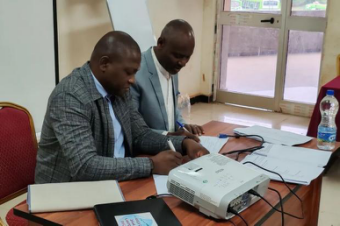
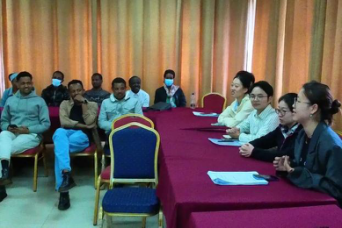
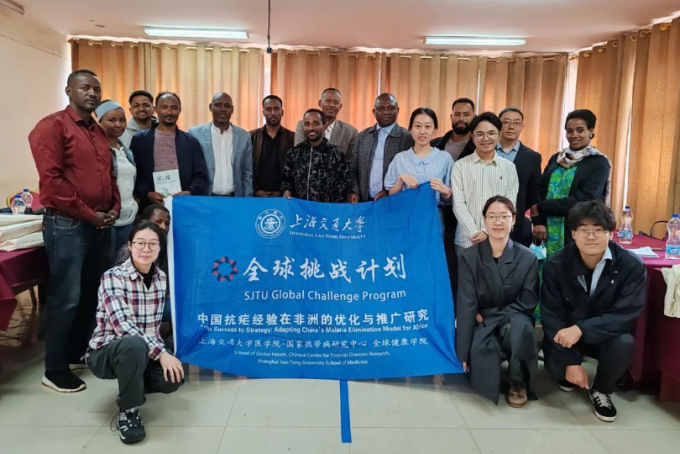
Strengthening Frontline Diagnostic Capacity through RDT Training
On 27 August at Bele Primary Hospital, the team demonstrated standardized RDT procedures to local health workers and conducted rapid random screening of 20 febrile patients, detecting nine positive cases. They combined Chinese evidence-based guidelines with local realities to propose diagnostic and treatment suggestions, learning to adjust protocols based on patient conditions and drug availability. In nearby communities, they distributed prevention materials, installed mosquito traps for vector monitoring (capturing 56 mosquitoes that night for a local vector database), and interviewed households to understand knowledge gaps and breeding sites—recognizing that material support must go hand-in-hand with health education and that communities are the final line of defense in malaria control.
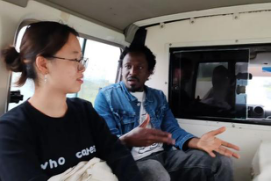
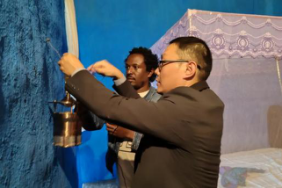
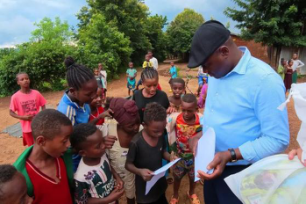
In Wolaita Sodo University’s laboratory, students worked alongside local technicians on RDT verification and DNA extraction, explaining key steps and sharing hands-on skills. Through collaborative practice, they not only transferred knowledge but also gained valuable cross-cultural experience, embodying the principle that true assistance is empowerment—“teaching to fish” and sparking local capacity for sustainable development.
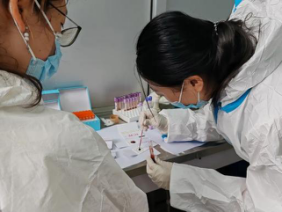
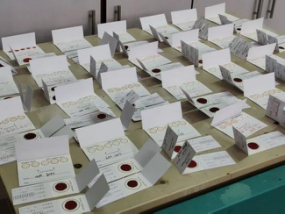
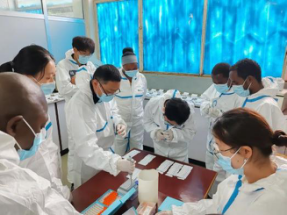
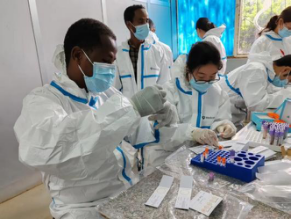
“SJTU Day”: Showcasing Results and Opening a New Chapter in China–Ethiopia Cooperation
On 29 August, “Shanghai Jiao Tong University Day” was held at Wolaita Sodo University. Both sides reviewed the cooperation journey, presented research findings, and engaged in cultural exchanges. The practice team proposed a “microscopy-centered, RDT-supplemented” diagnostic strategy based on rigorous data and field observation, earning high praise from Ethiopian experts. From learners to field practitioners to confident presenters, the students underwent a profound transformation. Their proposals reflected not only Chinese expertise but also the global vision and responsibility of a new generation. Wolaita Sodo University awarded the team honorary certificates, recognizing their contribution and the enduring friendship between the two sides.
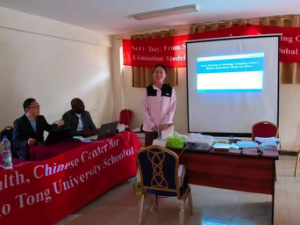
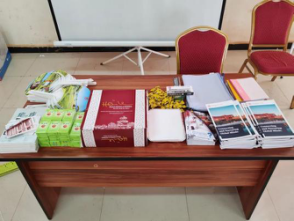
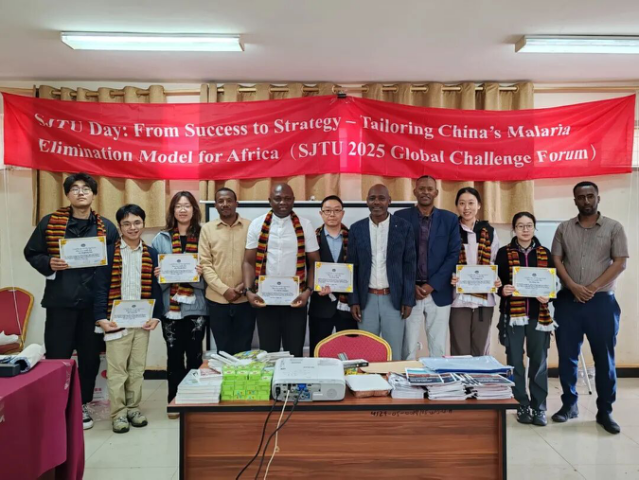
From Shanghai to Ethiopia, this project achieved a leap from “Chinese experience” to “African practice,” exploring a cooperative path of “matching needs, adapting technology, and building capacity together.” As Researcher Zhou Xiaonong observed, “Global health governance is not a one-way export but a journey toward each other.” This practice not only brought Chinese expertise to Africa but also taught Chinese youth the importance of local adaptation. Standing at the new starting point of the 55th anniversary of China–Ethiopia diplomatic relations, the SJTU Global Health School will continue to deepen cooperation and contribute “China–Ethiopia strength” to a malaria-free world and a global community of health for all.
Source: Global Challenge Program “Transformation of China’s Schistosomiasis Control Experience in Southeast Asia” Project Team
Intern Editor: Shi Ruyu
Chief Editor: Hao Jie

